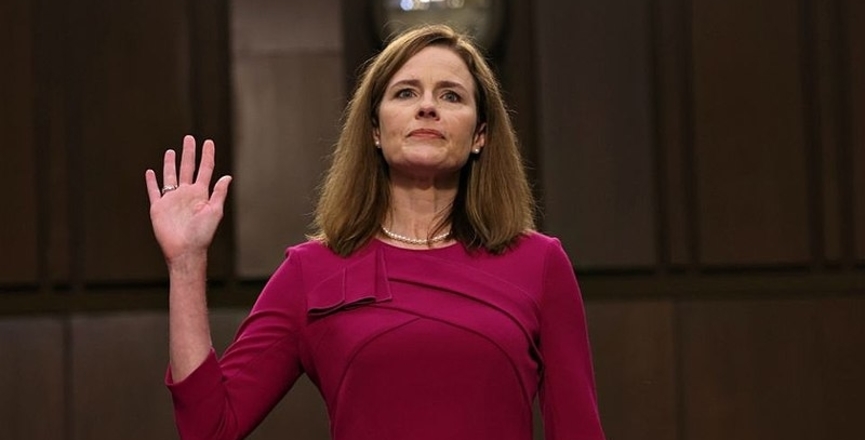As a person who was involved in public life for over three decades, and who never made any secret of my Christian faith and my vocation as an ordained minister in the United Church of Canada, I have been bothered at times by the tone and implications of some of the criticism directed at the appointment of Amy Coney Barrett to the United States Supreme Court.
I am not talking about the gross and hypocritical abuse of process and precedent by the Republican-controlled Senate; I am talking about the concerns raised about her being a Roman Catholic.
These concerns are sometimes raised in a way that suggests that being religious — in this case, being Roman Catholic — should somehow disqualify one in principle from occupying decision-making positions in the public realm.
Such an attitude is arguably a form of secular fundamentalism that should be rejected like any other fundamentalism by people who are interested in the kind of inclusive secularism and pluralism recommended by Canadian philosopher Charles Taylor as essential to a healthy democracy.
Having said this, it is important to reflect on the specific concern raised by many about Amy Coney Barrett’s Catholic faith. To some extent, this is a particularly American thing. In 1960, there was controversy when John F. Kennedy became the first Catholic to be elected as president. In Canada, in my time in Parliament, six of the nine prime ministers I sat across from were Catholic.
Jackie Kennedy is reported to have once said regarding the controversy about her husband’s Catholicism that she didn’t understand the fuss, given that he was such a poor Catholic.
The problem with Amy Coney Barrett is not that she is a Catholic. It’s that, one might argue, she is such a poor Catholic, or not Catholic enough, or that she is a particular kind of Catholic. For example, she is a Catholic who, when asked about climate change, refused to affirm the position that Pope Francis has made a signature concern of his papacy.
The fact is Coney Barrett is clearly associated with a Catholic right wing in America that has been fighting and/or ignoring over a century of Catholic social teaching — papal, episcopal and otherwise — that has been critical of capitalism and the worship of money and the market.
Pope John Paul II and his successor, Benedict, were against abortion, but they were also for unions, and for the common good over multi-national profits. This fact is not something that was ever highlighted by a media more interested in fuelling the culture wars, and strangely doing the work of the Catholic right by reducing Catholic social teaching to absolutes on a handful of issues.
Coney Barrett is associated with a Catholic right that wants to reduce faith to the realm, and a selective one at that, of purely personal ethics, and leave the rest of human life — including health care — to the vicissitudes of the market and the glories of American exceptionalism, overseen by Republicans.
A Catholic court appointee who showed some evidence of taking her own church’s social teachings about power, politics and the economy would be more welcome.
It’s not your religion that counts, or your personal cosmology if you don’t want to be counted among the religious — it’s what you derive from your worldview, the policies that you claim flow from it, and how you defend those policies in a pluralist democratic society. This is what such debates should be about.
Bill Blaikie, former MP and MLA, writes on Canadian politics, political parties and Parliament.
Image: Wikimedia Commons




